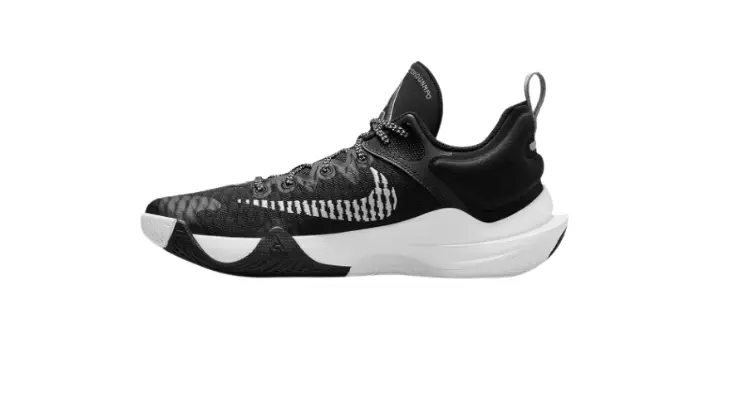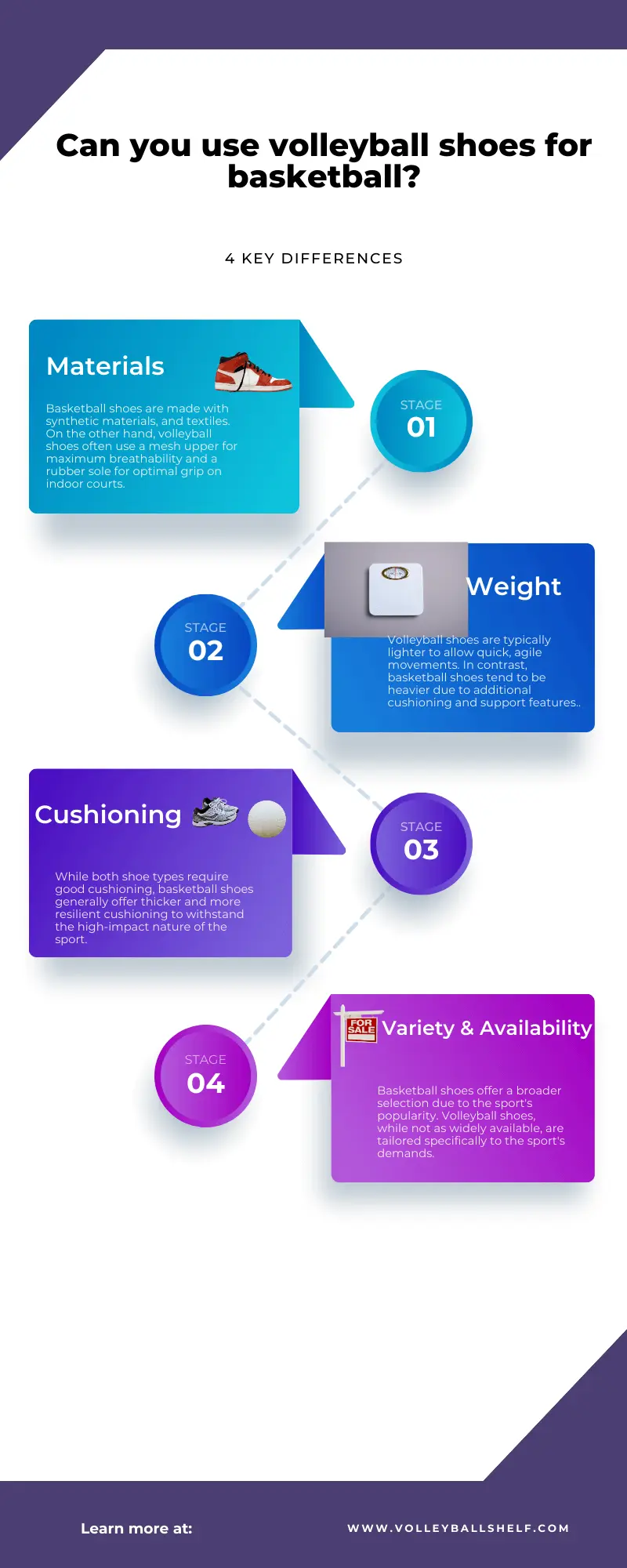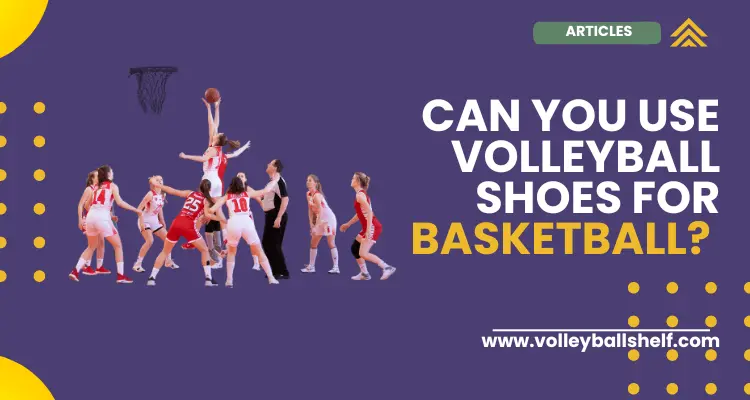Volleyball Shoes and Basketball Sneakers
Upon a cursory glance, Can you use volleyball shoes for basketball? the concept of volleyball shoes and basketball shoes may seem interchangeable. However, the specificity of each sport calls for unique features in its footwear, from materials and weight to cushioning and more.
Volleyball shoes, for instance, are designed to cater to frequent lateral movements, jumping, and impact protection, whereas basketball shoes prioritize support, comfort, and mobility.
Despite their differences, one cannot help but question the versatility of these shoes. Are volleyball shoes evolving into something that could serve well on the basketball court?
Quick Response
Can you use volleyball shoes for basketball? Yes, you can use volleyball shoes for basketball. However, volleyball shoes are designed for quick lateral movements and stopping, while basketball shoes are designed for more forward movement. As a result, you may experience less traction and support in volleyball shoes when playing basketball.
The Evolution of Volleyball Shoes
In recent years, there’s been a visible “basketballization” of volleyball shoes, suggesting a potential overlap. This evolution hints at why wearing basketball shoes for volleyball may not be as outlandish as it sounds. However, there’s more to consider than just the basic feasibility.
Why Basketball Shoes Can be Ideal for Volleyball?

Basketball shoes present several enticing benefits that may sway volleyball players their way. They tend to have better cushioning, making them ideal for frequent flyers who continuously jump and land during games. Plus, basketball shoes generally come at a more affordable price point.
In an increasingly competitive market with brands like Nike, Adidas, and Li-Ning vying for the spotlight, you can find excellent options that won’t break the bank.
Volleyball Position Specific Footwear Options
Just as there are different positions on a volleyball team – Libero, Setter, Outside Hitter, Opposite Hitter, Middle Blocker – there should be specific shoes catering to their needs.
For instance, High Tops with their added ankle support could benefit players who leap often, such as Outside Hitters and Middle Blockers.
More Bounce and Cushioning for High Flyers
Certain basketball shoes like the Nike React Hyperset, Adidas Dame 7s, and Nike Giannis Immortality provide exceptional bounce and cushioning that cater to the high-flying nature of volleyball. These shoes can absorb impact efficiently, making them beneficial for players frequently in the air.
Basketball Shoes’ Affordability and Variety
The availability and variety of basketball shoes also provide a significant edge over volleyball-specific shoes. Moreover, the price factor shouldn’t be underestimated.
Compared to specific models like the Asics Sky Elite FF or the Mizuno Wave Momentum 2, basketball shoes like the Nike Lebron 18, Jordans, KD14s, Curry 8s, and PG 5s, typically come at more budget-friendly prices without compromising on quality and performance.
Volleyball and Basketball Shoes: Core Differences
Despite these overlaps, there are key differences to consider when comparing volleyball and basketball shoes. These include:

Materials
Basketball shoes typically employ a combination of leather, synthetic materials, and textiles for a balance between comfort, durability, and breathability. On the other hand, volleyball shoes often use a mesh upper for maximum breathability and a rubber sole for optimal grip on indoor courts.
Weight
Volleyball shoes are typically lighter to allow quick, agile movements. In contrast, basketball shoes tend to be heavier due to additional cushioning and support features.
Cushioning
While both shoe types require good cushioning, basketball shoes generally offer thicker and more resilient cushioning to withstand the high-impact nature of the sport.
Variety & Availability
Basketball shoes offer a broader selection due to the sport’s popularity. Volleyball shoes, while not as widely available, are tailored specifically to the sport’s demands.
For Volleyball, Which Basketball Shoes Make the Cut?
Not all basketball shoes are created equal, especially when it comes to adapting to volleyball’s unique demands. Some top contenders include the Curry 9s, PG 6s, and Kyrie Flytrap. These models balance support, cushioning, and flexibility, allowing athletes to move seamlessly between the two sports.
Volleyball and High Tops
High Tops, known for their excellent ankle support, can be beneficial for volleyball players, particularly for positions that require frequent jumping. The added stability could help prevent common injuries like ankle sprains.
Steering Clear: Things to Avoid When Choosing Basketball Shoes for Volleyball
Just as certain features make basketball shoes appealing for volleyball, others can make the transition problematic.
Excessive heel caging can restrict the foot’s natural flex, while excessive weight may hamper agility. Plus, a thin midsole or weak cushioning might not provide the necessary impact protection for frequent jumps.
Can you use volleyball shoes for basketball?
When considering whether volleyball shoes could serve basketball players, the shoe design features tailored for volleyball may fall short on a basketball court. The material, cushioning, and support are not designed for the intense and physical nature of basketball.
Why Basketball Players Might Pass on Volleyball Shoes?
Given the differences in shoe design, it’s easy to see why basketball players may hesitate to wear volleyball shoes. The lower ankle support, lighter cushioning, and the emphasis on light weight and mobility in volleyball shoes might not meet the basketball court’s rigorous demands.
Conclusion
In conclusion, while volleyball and basketball shoes serve their specific purposes, the evolving nature of shoe design and technology has blurred the lines.
Basketball shoes can be a viable choice for volleyball players, provided one pays attention to factors like cushioning, weight, and support. However, it’s essential to choose the right model to ensure optimal performance and comfort on the court.
However, the transition from volleyball shoes to the basketball court is trickier, given the sports’ different demands. As always, individual comfort, foot type, and personal preference play significant roles in finding the perfect pair.
Whether you’re hitting the volleyball court in your Jordans or setting in your Curry 9s, the ideal shoe is one that enhances your performance while keeping you comfortable and injury-free.



![How to make your volleyball shoes smell better? [9 Tips]](https://volleyballshelf.com/wp-content/uploads/2023/09/how-to-make-your-volleyball-shoes-smell-better.webp)
![Can you use basketball shoes for Volleyball? [3 key Differences]](https://volleyballshelf.com/wp-content/uploads/2023/09/can-you-use-basketball-shoes-for-volleyball.webp)
![Volleyball Shoes Asics Vs Mizuno – A Comprehensive Review [4 key Differences]](https://volleyballshelf.com/wp-content/uploads/2023/08/Volleyball-Shoes-Asics-Vs-Mizuno.webp)
![Do adidas volleyball shoes run big? [key reasons]](https://volleyballshelf.com/wp-content/uploads/2023/09/Do-adidas-volleyball-shoes-run-big.webp)
![Can Volleyball Shoes Be Used for Netball? [3 key reasons]](https://volleyballshelf.com/wp-content/uploads/2023/09/Can-Volleyball-Shoes-Be-Used-for-Netball.webp)
![Can You Wear Tennis Shoes for Volleyball? [ 4 Core Differences]](https://volleyballshelf.com/wp-content/uploads/2023/08/www.reallygreatsite.com-4-1.webp)